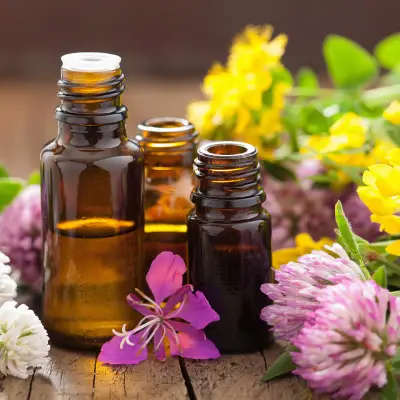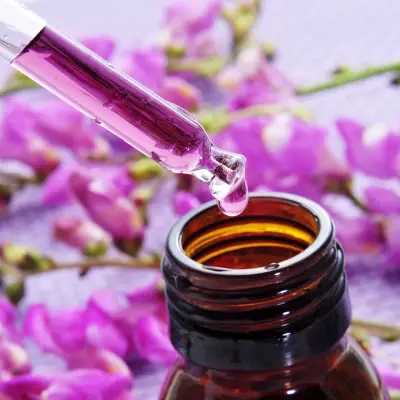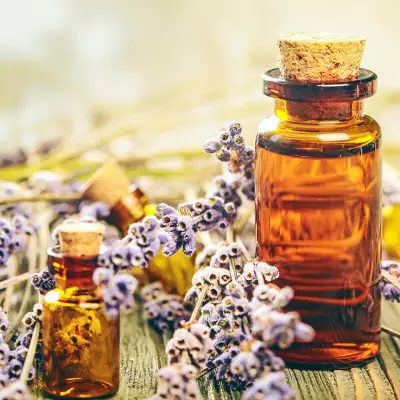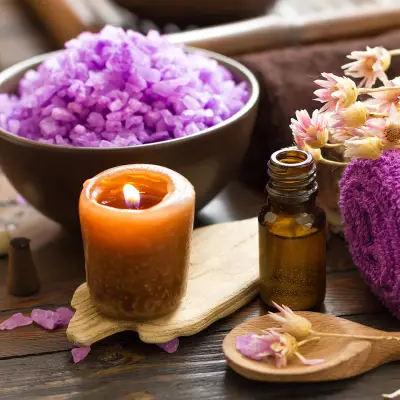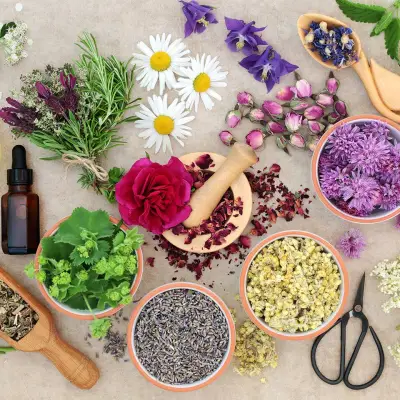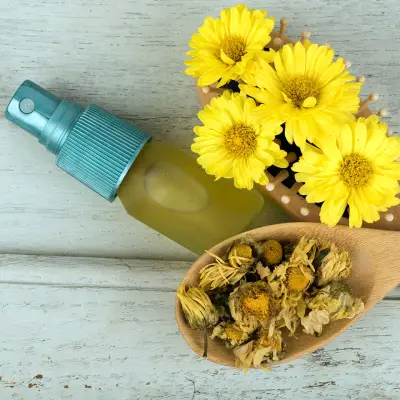If you’ve found yourself searching for ways to improve your skin, you’ve likely come across neroli oil. Known for its uplifting floral scent and wide array of holistic uses, neroli essential oil has gained popularity in both skincare and aromatherapy. But what exactly is neroli oil, and why do so many people swear by it?
This guide explores everything you need to know about neroli essential oil for your skin, including its uses, benefits, and potential side effects.
This article is for informational purposes only and does not constitute medical advice. Always consult with a qualified healthcare professional before starting any new skincare treatment, especially if you have underlying health conditions or allergies.
Jump to:
Recommended for you!
Best SellersWhat is Neroli Essential Oil?
Neroli essential oil is extracted from the delicate blossoms of the bitter orange tree (Citrus aurantium) and is cherished for both its aromatic charm and therapeutic qualities. The oil is obtained through steam distillation, a gentle process that preserves the flower’s beneficial plant compounds and its beautifully distinctive fragrance.
It carries a sweet, floral scent, softened by citrusy undertones and a subtle hint of honey, often described as fresh and uplifting, like the air in an orange grove after rainfall.
Is Neroli Oil Good for the Skin?
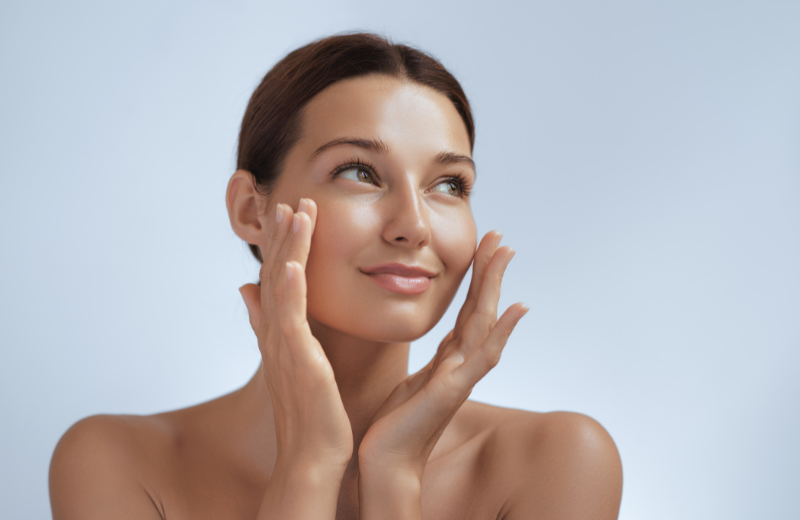
Neroli essential oil is widely praised for its powerful effects on the skin. It's especially beneficial for sensitive, dry, or ageing skin, helping to soothe irritation, promote elasticity, and encourage a healthy, radiant glow. Long valued in both traditional and modern skincare, neroli oil is known for supporting skin regeneration while delivering a beautifully calming scent. Here are some of the ways neroli oil can benefit your skin:
- Hydrates and softens dry or dehydrated skin
- Supports cell renewal and helps reduce the appearance of scars
- Soothes irritation, redness, and sensitive patches
- Minimises fine lines and improves skin texture
- Assists with blemish control through its antibacterial properties
Neroli Essential Oil’s Benefits for Skin

Let’s explore the benefits of neroli essential oil in more detail, particularly when it comes to caring for your skin:
1. Hydrates and Softens
Neroli oil helps to lock in moisture, making it a wonderful choice for dry, flaky, or dull skin. Its nourishing qualities support the skin’s natural barrier and leave it feeling smooth, supple, and refreshed. When blended with a carrier oil, it delivers deep hydration without clogging pores.
2. Supports Skin Regeneration
One of neroli’s most valued properties is its ability to promote cell renewal. This makes it especially useful for fading scars, stretch marks, and other signs of skin damage. Over time, it can contribute to a clearer, more even complexion with improved texture.
3. Calms Redness and Irritation
Naturally anti-inflammatory, neroli essential oil is gentle enough for sensitive skin and may help soothe irritation, redness, or flare-ups caused by dryness, environmental stress, or minor skin conditions. Its calming nature supports a more balanced and comfortable complexion.
4. Reduces Fine Lines and Wrinkles
With its antioxidant content and skin-rejuvenating properties, neroli oil is often used to help reduce the appearance of fine lines and early signs of ageing. It may also support elasticity, giving the skin a firmer and more youthful look with consistent use.
5. Helps Manage Breakouts
Thanks to its antibacterial and antiseptic properties, neroli essential oil can be beneficial for those prone to blemishes or congestion. It works to reduce surface bacteria while calming inflammation, making it a gentle yet effective addition to acne-prone skin routines.
How to Use Neroli Essential Oil on Your Skin
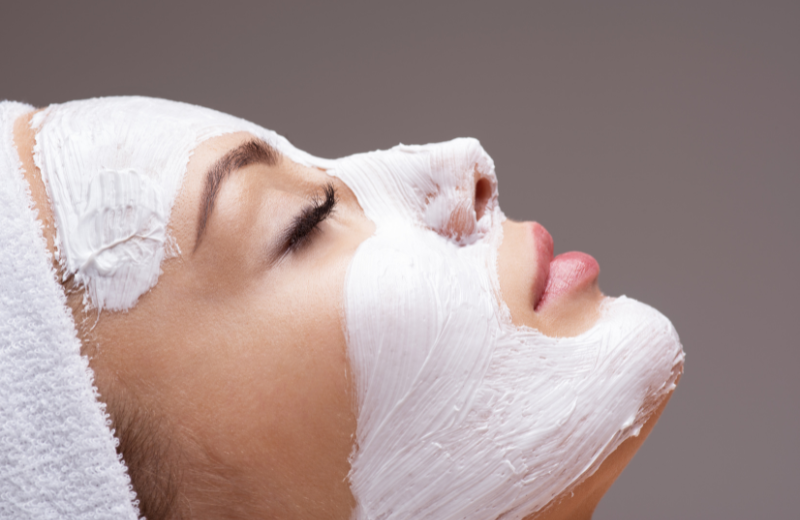
Incorporating neroli essential oil into your skincare routine can be an effective way to support hydration, clarity, and a more radiant complexion. However, like all essential oils, it should be applied carefully to ensure your skin stays healthy and irritation-free:
- Dilute Before Applying: Neroli oil should always be diluted with a carrier oil before use on the skin. This helps minimise the risk of sensitivity and allows for smoother application. For facial use, mix 1–2 drops of neroli essential oil with one teaspoon (around 5ml) of a suitable carrier oil such as jojoba, almond, or grapeseed oil.
- Mix with Moisturiser: You can blend neroli oil into your everyday face cream or body lotion to enhance hydration and nourishment. Add 1–2 drops of essential oil per 30ml of product, mix well, and apply as part of your morning or evening skincare routine.
- Spot Treatment: For targeted concerns like blemishes, scars, or dry patches, apply a small amount of diluted neroli oil to the affected area using a cotton bud. This can help calm redness, reduce bacteria, and promote healing over time. Use once or twice a day and always carry out a patch test first.
- Facial Steam or Massage: For a relaxing and skin-reviving treatment, add a few drops of neroli essential oil to a bowl of steaming water and let your face absorb the benefits for a few minutes. Alternatively, mix it with a carrier oil and use it for a soothing facial massage to improve circulation and skin tone.
- Use with Caution: Although neroli is gentle and well-suited to most skin types, it’s still a concentrated oil. Always dilute it before applying and avoid the area around your eyes. Perform a patch test on your inner arm before first use to check for any signs of sensitivity or allergic reaction.
Recommended for you!
Best SellersFrequently Asked Questions About Neroli Oil for Your Skin
How Do You Pronounce the Word Neroli?
It’s pronounced NEH-roh-lee. Not ‘nuh-ROLL-ee’ or ‘neh-RAW-lee’.
What Do You Mix with Neroli Essential Oil?
Neroli blends beautifully with oils like lavender, sandalwood, bergamot, frankincense, and citrus oils like orange and lemon.
Try mixing:
- Neroli + Lavender = Sleep and calm
- Neroli + Frankincense = Grounding and rejuvenation
- Neroli + Bergamot = Uplifting and mood-boosting
Is neroli essential oil safe for all skin types?
Neroli essential oil is generally safe for all skin types, but always do a patch test first, especially if you have sensitive skin. While it’s considered gentle, everyone's skin reacts differently, so it's best to test a small area before applying more broadly.
What precautions should be taken when using neroli essential oil?
Avoid direct sun exposure on areas where the oil has been applied (even diluted), and never use it undiluted. It’s also important to store the oil away from heat and light to maintain its potency.
Who should not use neroli essential oil?
Those with citrus allergies, sensitive skin, or hormone-sensitive conditions should consult a doctor before trying neroli oil. Additionally, anyone with underlying skin conditions should speak with a dermatologist before using essential oils regularly.
How long does neroli essential oil last?
When stored properly in a cool, dark place, neroli oil can last for up to 2 years. However, always check for changes in scent or consistency, as these may signal that the oil has oxidised.
Can neroli essential oil clog pores?
Neroli essential oil is considered non-comedogenic, meaning it’s unlikely to clog pores. In fact, it may help regulate sebum production, making it suitable for those with oily or acne-prone skin when properly diluted.
Can neroli oil be used around the eyes?
It’s not recommended to apply essential oils directly around the eyes, as the skin in that area is extremely delicate. If you’re using a facial blend containing neroli, keep it at least a few centimetres away from your eyes to avoid irritation.
Why is neroli oil so expensive?
Neroli oil is considered one of the more luxurious essential oils due to the labour-intensive harvesting process. The flowers must be handpicked and distilled immediately to preserve their delicate aroma. It takes thousands of blossoms to produce a small amount of oil, which is why this oil often comes with a higher price tag.
Study Our Aromatherapy Diploma Course for £29
If you’re fascinated by the benefits of neroli oil, why not turn your interest into a skill? At Centre of Excellence, we offer an Aromatherapy Diploma Course that explores different essential oils, blending techniques, safety precautions, and how to apply your knowledge at home or professionally. As a special offer, you can access the Aromatherapy Diploma Course for just £29!


